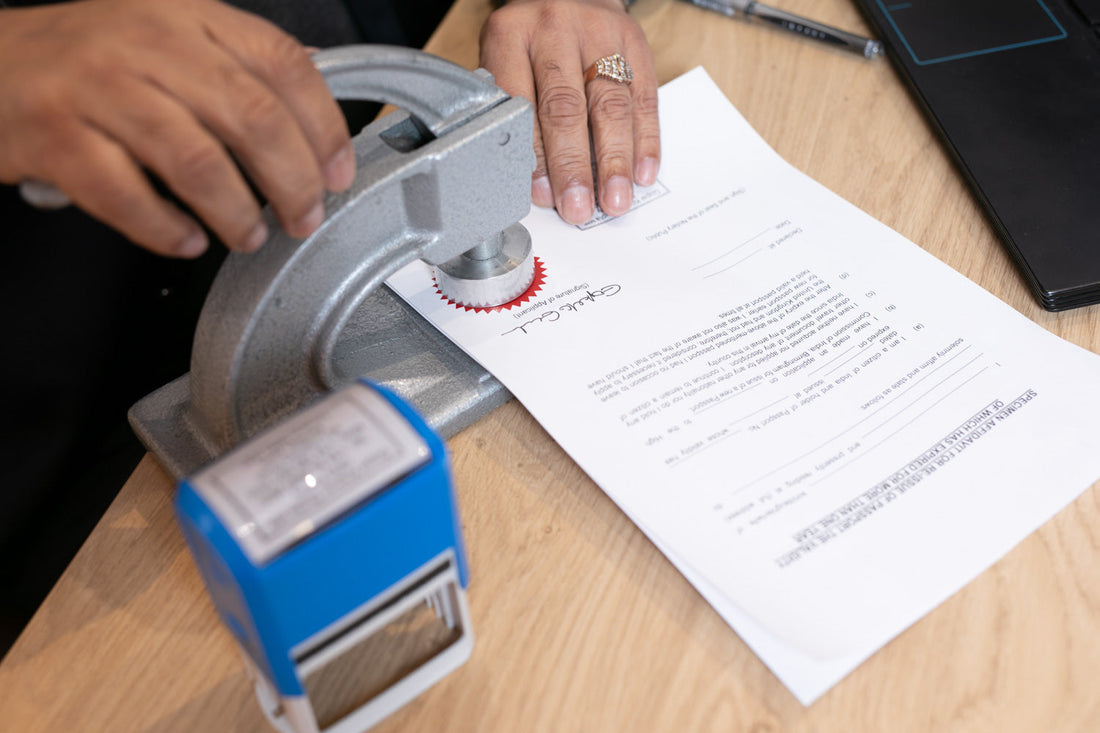UK Document Certification: Notary, Solicitor, and FCDO Registration Requirements
Ensure your documents meet UK certification standards for international use. Learn when a notary or solicitor is needed, confirm FCDO registration for signatures, and verify requirements for doctor’s letters. Follow our document submission guidelines and explore consular legalisation services to avoid rejections.

When preparing documents for international use, you may need them certified by a UK notary public or solicitor and legalised by the Foreign, Commonwealth & Development Office (FCDO). Below, we clarify when certification is required, whether a solicitor’s or doctor’s signature must be registered with the FCDO, and specific requirements for a doctor’s letter.
When Is Certification by a Notary or Solicitor Required?
Certification is generally required when a document does not already bear a public official’s signature or seal (e.g., a birth certificate or court order). The FCDO can only issue an apostille—a form of official authentication—if the document’s signature is verified, and many documents require certification before this step.
Documents That Typically Require Certification
-
Personal Documents: Copies of passports, driving licences, or academic certificates often need to be certified as “true copies” by a solicitor or notary.
-
Business Documents: Company documents such as powers of attorney or financial statements may require certification, often by a notary for international validity.
-
Originals with Public Signatures: Documents such as birth, marriage, and DBS certificates usually do not require certification as they already carry an official seal or signature.
Solicitor vs. Notary: Who to Use?
-
Solicitor: Ideal for standard certifications such as true copies or witnessed signatures. Typically more affordable, with fees around £12–£50. Use a solicitor unless the foreign authority explicitly requires a notary.
-
Notary Public: Necessary for more complex or sensitive documents (e.g., powers of attorney for property transactions overseas) or where the foreign authority specifically requests notarisation. Notarial fees typically range from £80–£250.
Tip: Always confirm with the receiving authority whether a solicitor's or a notary’s certification is required.
Must a Solicitor’s Signature Be Registered with the FCDO?
Yes—if the document requires an apostille, the solicitor’s signature must be registered with the FCDO. The FCDO checks signatures against its database, and unregistered signatures will cause rejection.
Verification Process
-
Before submitting documents, confirm that your solicitor is FCDO-registered.
-
Solicitors can verify or register by emailing the FCDO with their practising certificate details.
-
If a document is rejected due to an unregistered signature, the solicitor must complete registration and the document must be resubmitted, including proof of registration (such as an FCDO confirmation email).
Tip: To avoid delays, use a solicitor already registered with the FCDO
-
Exceptions: For domestic use (e.g., UK bank accounts), FCDO registration is typically not required, as apostilles aren’t needed.
Doctor’s Letter: FCDO Registration Requirements
If submitting a doctor’s letter—such as a medical certificate or health declaration—for FCDO legalisation, the doctor’s signature must also be registered with the FCDO.
Requirements for Doctor’s Letters
-
GMC Registration: The doctor must be registered with the General Medical Council (GMC).
-
FCDO Registration: The doctor must confirm that their signature is on file with the FCDO. If not, they must register by emailing the FCDO with their GMC details.
-
Original Document: The letter must be an original, signed in wet ink. Photocopies—even if certified—may be rejected unless explicitly allowed by the receiving authority.
Alternatives
If the doctor is not FCDO-registered, a solicitor or notary can certify the letter instead. However, confirm in advance whether the receiving authority will accept this, as some require the doctor’s signature specifically.
Practical Steps and Tips to Avoid Rejection
Use Original Documents: Submit originals for official documents like birth or marriage certificates. Photocopies are usually not accepted.
Check Certification Standards: The certifier (solicitor, notary, or doctor) must include:
- Full name
- Signature
- Date
- Certification statement (e.g., “Certified as a true copy”)
- For notaries, an embossed seal should appear on both sides of the page.
- Contact the doctor to verify FCDO registration before submission.
- If using a service like Zoomdoc (as mentioned in some sources), ensure the doctor is FCDO-registered.
- Check our document legalisation checklist for a full checklist to avoid rejections.
Final Note on Resubmissions
If your document is rejected due to certification or registration issues, you’ll need to correct the problem and resubmit, which may incur additional fees.
For expert assistance, explore our consular legalisation services to ensure your documents meet all FCDO and international standards.